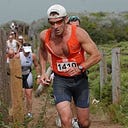Adapting Your Triathlon Training for Aging Athletes

Triathlons are a rigorous test of endurance, strength, and mental fortitude. For aging athletes, maintaining performance while accommodating the natural changes in the body requires smart training adjustments. Here’s how you can adapt your triathlon training to stay competitive and healthy as you age.
UNDERSTANDING THE AGING ATHLETE
As we age, our bodies undergo several physiological changes. Muscle mass decreases, aerobic capacity declines and recovery times lengthen. Recognizing these changes is the first step in adapting your training regimen effectively. Aging doesn’t mean giving up on triathlons; it means training smarter and more efficiently.
PRIORITIZING RECOVERY
Recovery is paramount for older athletes. Muscle repair and growth take longer, so it’s crucial to incorporate adequate rest into your training schedule.
IMPLEMENT ACTIVE RECOVERY
Include low-intensity activities like yoga, stretching, and swimming to keep your muscles engaged without overexertion. Active recovery helps maintain flexibility and reduces the risk of injury.
PLAN REST DAYS
Ensure you have regular rest days. These aren’t optional but essential for allowing your body to recover and build strength.
ADJUSTING TRAINING INTENSITY
High-intensity training sessions must be balanced with the body’s reduced ability to recover quickly.
FOCUS ON QUALITY OVER QUANTITY
Instead of logging countless miles, concentrate on the quality of your workouts. Shorter, high-intensity interval training (HIIT) sessions can be more beneficial than long, exhausting workouts. HIIT can improve cardiovascular health and maintain muscle mass without excessive strain.
INCORPORATE STRENGTH TRAINING
Strength training becomes increasingly important with age. Building and maintaining muscle mass can counteract natural losses. Include weight lifting or resistance training at least two to three times a week to enhance muscle endurance and power.
TAILORING NUTRITION
Proper nutrition supports training and recovery. As metabolism slows with age, dietary adjustments become necessary.
PROTEIN INTAKE
Increase protein intake to support muscle repair and growth. Include lean proteins like chicken, fish, beans, and legumes in your meals. Protein supplements can also be beneficial post-workout.
HYDRATION
Aging can diminish the sensation of thirst, leading to dehydration. Make a conscious effort to stay hydrated, especially during and after training sessions. Electrolyte-enhanced drinks can help maintain balance during intense workouts.
BALANCED DIET
Adopt a balanced diet of fruits, vegetables, whole grains, and healthy fats. These provide essential nutrients and antioxidants that combat inflammation and support overall health.
MONITORING HEALTH
Regular health check-ups become more critical as you age. Monitor key health metrics like blood pressure, cholesterol levels, and heart health.
REGULAR SCREENINGS
Schedule annual physicals and specific screenings relevant to athletes, such as bone density tests and cardiovascular evaluations. These help catch potential issues early and adjust training plans accordingly.
LISTEN TO YOUR BODY
Pay attention to signs of overtraining or injury. Fatigue, persistent pain, and prolonged recovery times are signals to modify your training. Don’t ignore these cues; adapt your regimen to prevent long-term damage.
MENTAL ADAPTATIONS
Aging athletes might also face mental hurdles. Maintaining motivation and a positive outlook is crucial.
SET REALISTIC GOALS
Adjust your goals to reflect your current capabilities. Focus on personal improvement rather than competing with younger athletes. Celebrate small victories and milestones.
STAY CONNECTED
Engage with the triathlon community. Training with peers can boost motivation and provide valuable support. Online forums and local clubs can offer camaraderie and shared experiences.
EMBRACING ADAPTABILITY
Aging is inevitable, but it doesn’t spell the end of your triathlon career. By adapting your training methods, prioritizing recovery, and listening to your body, you can continue to enjoy the sport you love. Stay informed, stay motivated, and keep pushing your limits within reason. Your best performance is yet to come.
Originally posted on http://scottcathcart.net
